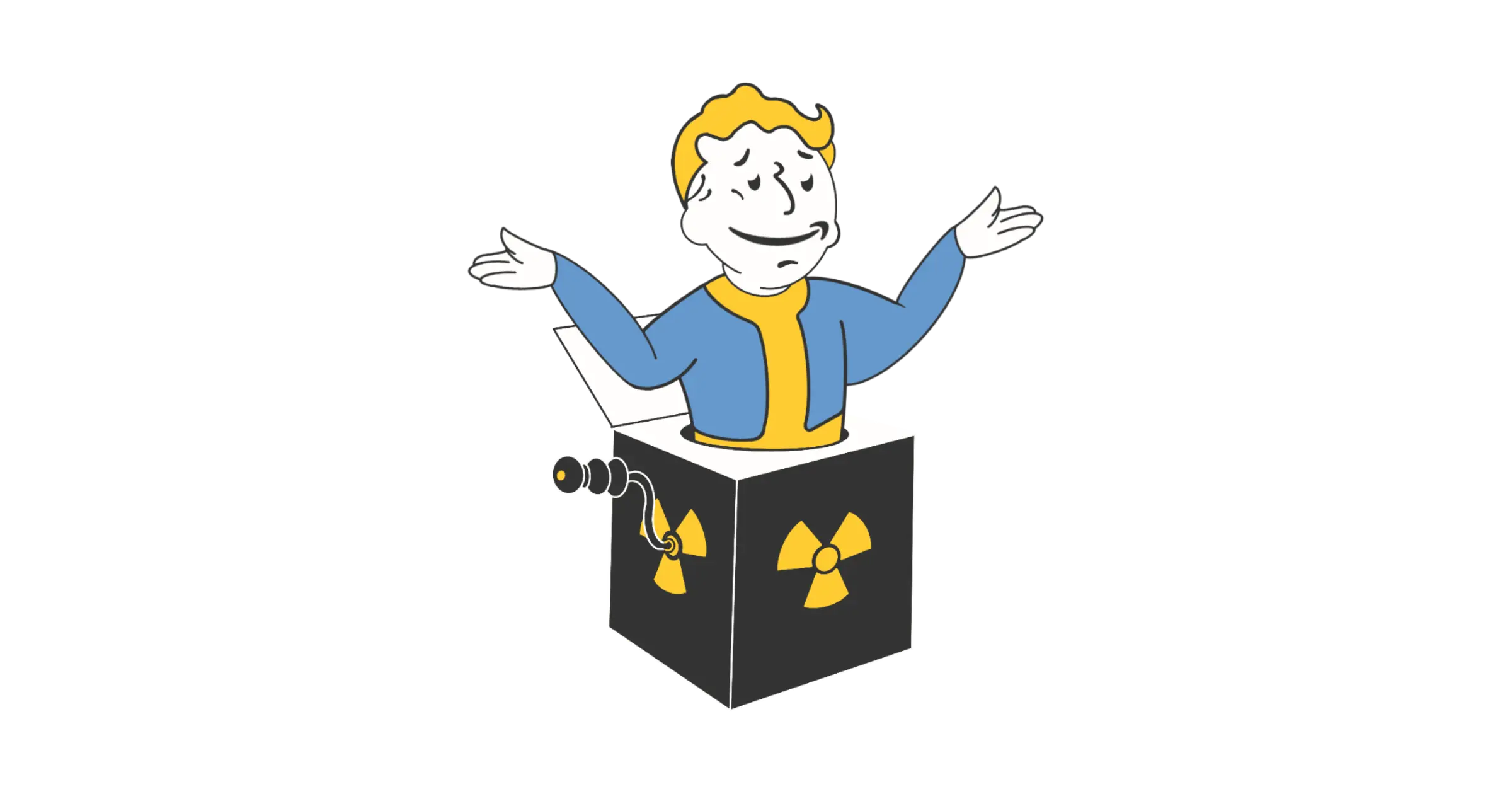pip-boy
 The Fallout franchise has long been celebrated for its ability to combine the post-nuclear apocalyptic genre with the naivety of 1950s American values and its iconography, supplying ironic takes on the ‘50s motifs as a lens through which to examine the failings of consumer-capitalist culture and the dangers of technological solutionism. Yet, the television adaptation has succumbed to the temptation of spectacle, prioritizing gory violence, a casually dark approach to the absurdity, and a Marvel-esque focus on superhero-ization of the narration, overexposed by flashbacks. These stylistic ’Mementos’ flourishes, which appear to bear the distinctive brush strokes of Nolan’s directorial approach, leave the renderings of the Wasteland to a few slapstick depictions rather than
the kind of nuanced, dialectical engagement with the open-map world seen in the original game. Which perhaps is what the household of Nolan and Joy aimed for. In contrast to their previous works, the television adaptation steadily projects as commodified art.
The Fallout franchise has long been celebrated for its ability to combine the post-nuclear apocalyptic genre with the naivety of 1950s American values and its iconography, supplying ironic takes on the ‘50s motifs as a lens through which to examine the failings of consumer-capitalist culture and the dangers of technological solutionism. Yet, the television adaptation has succumbed to the temptation of spectacle, prioritizing gory violence, a casually dark approach to the absurdity, and a Marvel-esque focus on superhero-ization of the narration, overexposed by flashbacks. These stylistic ’Mementos’ flourishes, which appear to bear the distinctive brush strokes of Nolan’s directorial approach, leave the renderings of the Wasteland to a few slapstick depictions rather than
the kind of nuanced, dialectical engagement with the open-map world seen in the original game. Which perhaps is what the household of Nolan and Joy aimed for. In contrast to their previous works, the television adaptation steadily projects as commodified art.
As much as I may enjoy such a binge on a disposable amazon account, I find myself troubled by its witty and tense qualities to hijack the science fiction as a vehicle for tackling real-world technological and environmental challenges. By embracing postmodern irony in a shallow manner, the adaptation fails to capture the deeper philosophical substance that elevates the best science fiction narratives of Philip K. Dick, Ursula K. Le Guin or Frank Herbert, thereby undermining the genre’s power to serve as a tool for socio-cultural transformation and the capacity of speculative fiction as a whole to grapple with the most pressing existential questions we are facing – questions of politics, community, and the very nature of what it means to be human.
Herbert’s Dune presents a sprawling, meticulously crafted universe that explores power, ecology, and messianic prophecy. Dick confronts how technology, ideology, and corruption erode humanity. Le Guin constructs fully realized alternative societies to refract our own biases about gender, policing, and the very nature of utopia. However, the Fallout TV series seems content to revel in the spectacle of action-packed visuals featuring torsos comically exploding into meaty viscera – a nod to the game’s VATS system, no doubt — it is a far cry from the depth, complexity, and transformative vision that define the greatest works of science fiction. As I reflect on today’s duoton character—the “pip-boy”— I shrug my shoulders with hope that future adaptations, whether drawn from books or games, will rise back to the level of philosophical substance and societal relevance that elevates the genre at its best.